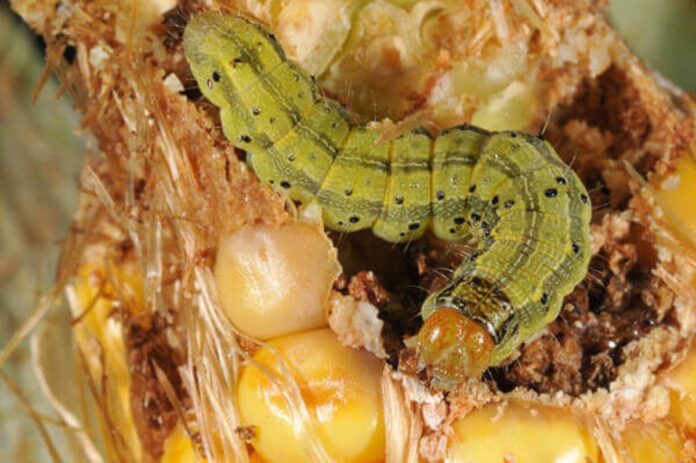This is a quick one on how to control the African armyworm popularly called armyworm, in maize. We had armyworm destroying 40% of our maize yield last season so it feels right to share the experience and remedy with you.
What is the difference between African Armyworm and Fall Armyworm?
According to experts, the fall armyworm creates small holes in the stem of the maize plant. That is not the way of the African armyworm.
The African armyworm usually hatches somewhere outside the farms and then steadily eat their way through everything in their path as a group. In contrast, the fall armyworm moth lays its eggs on the host plant. It does not eat everything and as it grows it moves up the maize plant. By that stage, the worm would have destroyed most of its competitors.
The fall armyworm makes a lot of yellowish debris and whitish powder on the leaves and the funnel where they are.(herald.co.zw)
Read also: Fall Armyworm: Recommended Pesticides and Controls
Before we touch on the main steps for control we tell farmers to harvest their maize early enough to avoid attack by armyworm.
Now to control African armyworm:
- Apply 150mil of K Optimal ( both contact and systemic insecticide) per 15 litres of water
- Apply with an insecticide nozzle, directing it on each plant
- Repeat application every 7 days
- Alternate insecticide after every two sprayings to avoid pest building resistance to insecticide
- Alternate with Dimiprid, Dean, Imiforce etc.
- Burn crop residue after harvest
- In the next season, use short duration certified seeds and plant early. Preferably, the first week in June or immediately rain starts.
- This is variable depending on the region’s rainfall pattern
Copied from a comment on our Facebook page. Find original comment below.


